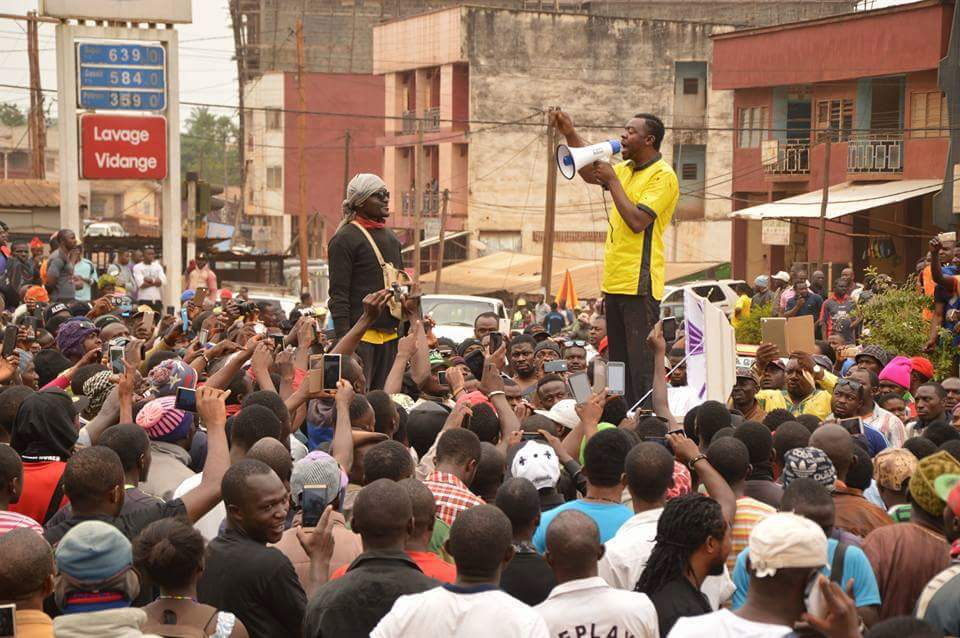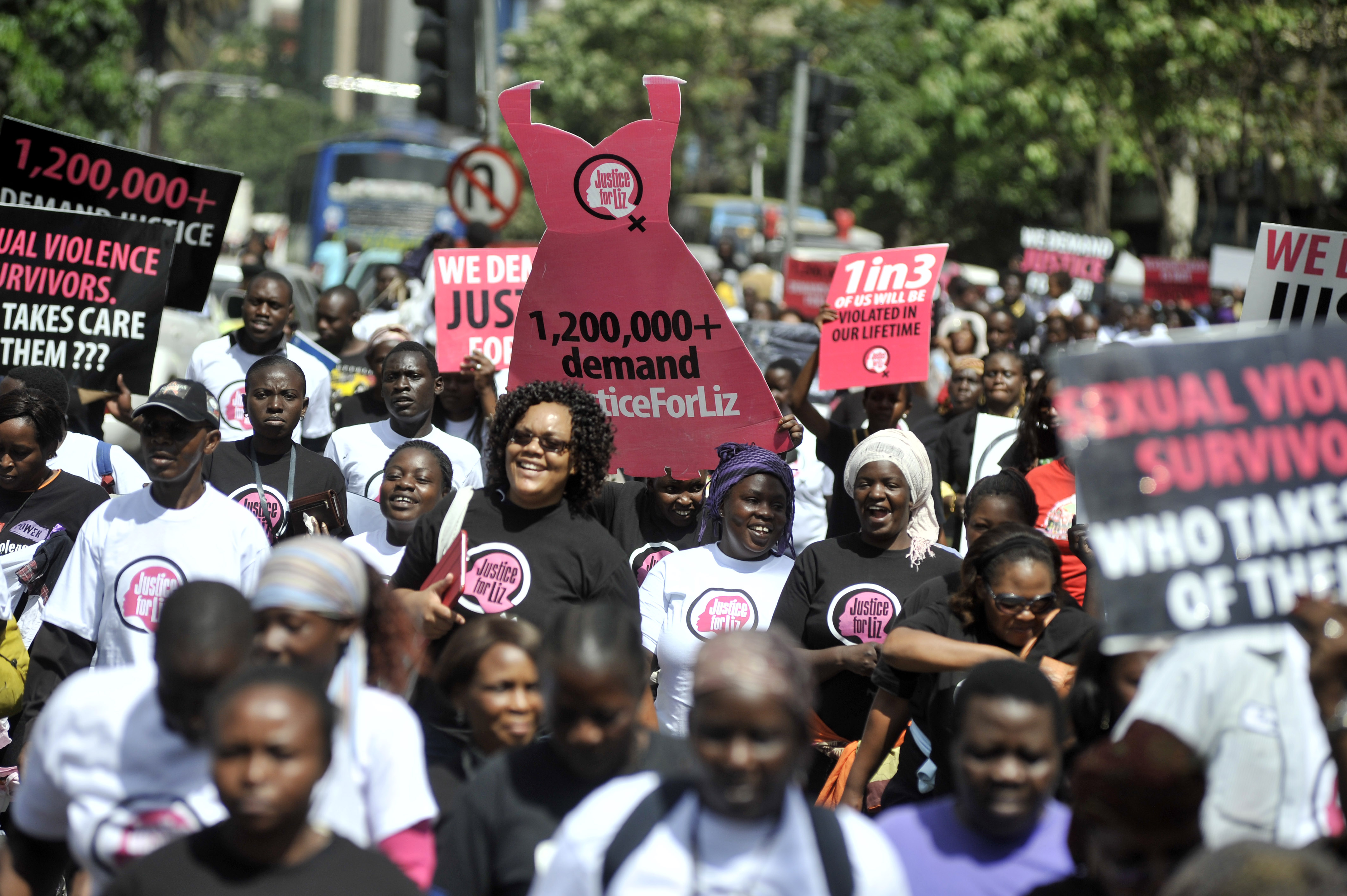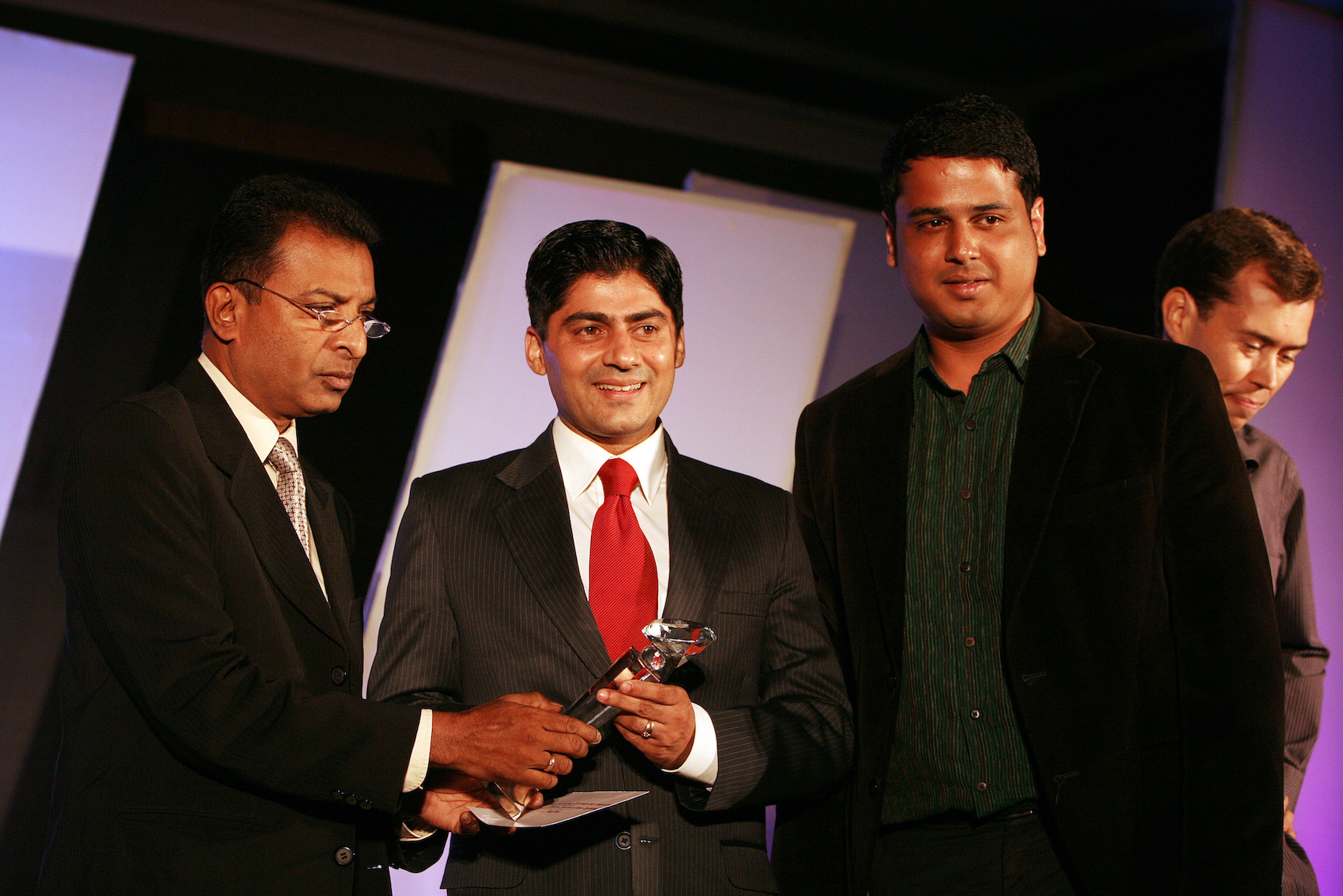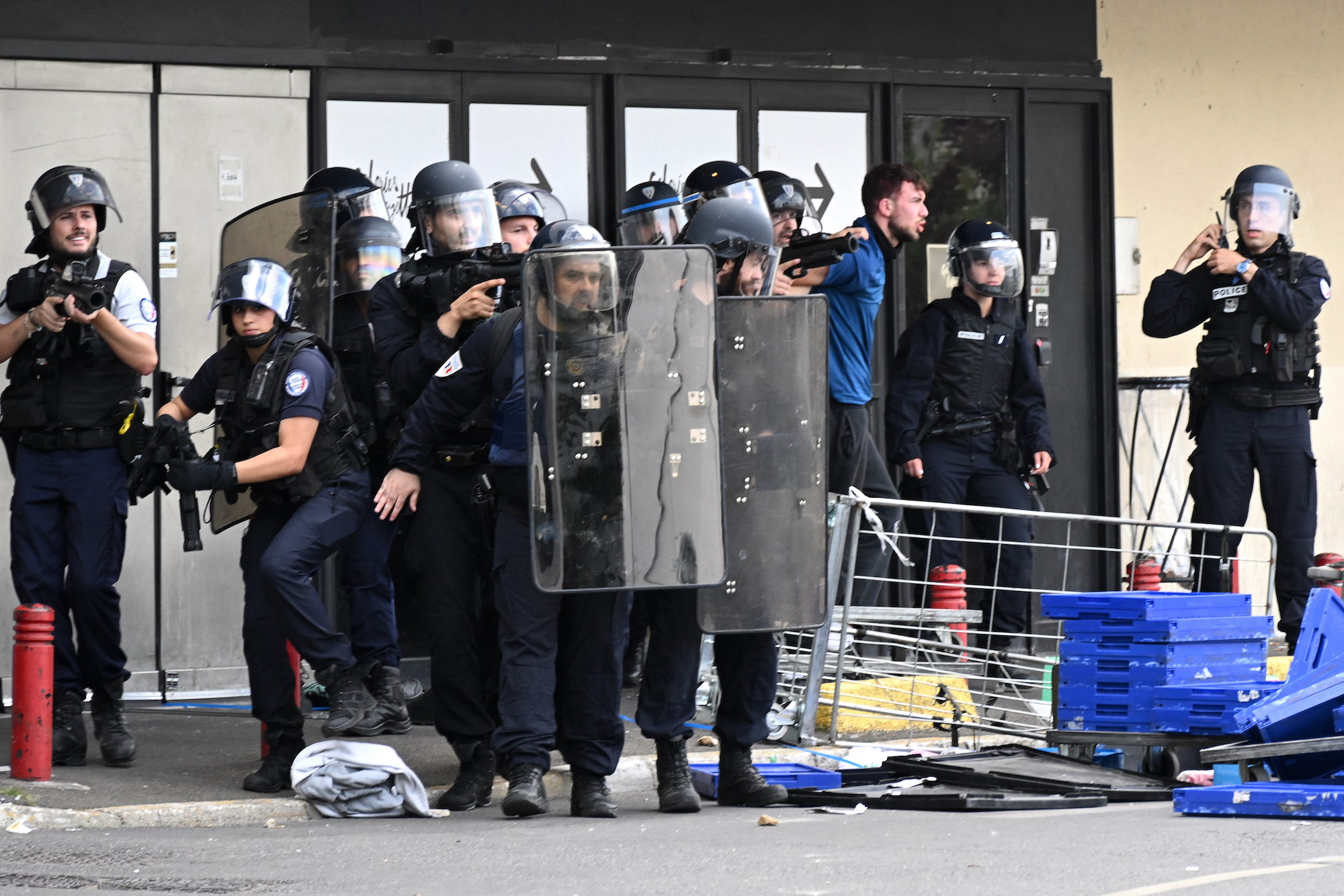A Woman's Voice in the Desert: Navigating the Spotlight
"May we interview you?" echoes in unison from several male journalists representing national Pakistani television channels as I step onto the dry, cracked ground of the Cholistan Desert during the 19th Desert Jeep Rally hosted by the Tourism Development Corporation of Punjab (TDCP) in Pakistan.
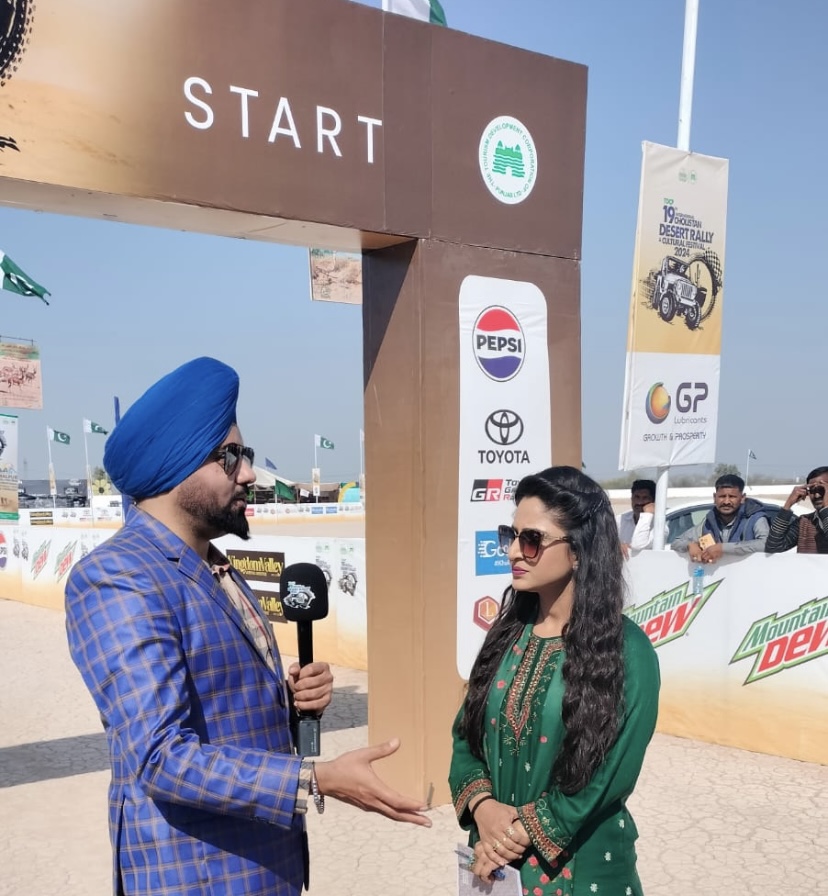
It immediately becomes apparent that, as the only visibly present female journalist and one of the two women walking on the ground, my presence has garnered attention beyond my reporting skills. Instead of being in the interviewer's seat, I now find myself as the subject, responding to questions about my experience here, rather than extracting insights from others.
The region's traditionally patriarchal society and historical norms, which confine women to domestic roles, limit their visibility in public spaces.
As I speak closely into the handheld microphone, interviewed by the eloquent Pakistani Sikh anchor, Taran Jeet Singh, a growing crowd of men gathers around me. Beads of sweat form on my forehead beneath the relentless sun, and I find myself immersed in a sea of expectant faces, each eager to capture the essence of my words on their phones.
"Hats off to the incredible team behind this event for turning this vast desert into a playground for thrill-seekers. Organising something of this scale in such a remote destination is no small feat," I say.
Adventure Tourism and Economic Benefits for the Local Community
Cholistan, situated about 30 kilometers from Bahawalpur in Southern Punjab, features challenging terrain, a harsh climate, and underdeveloped socio-economic conditions that contribute to a nomadic lifestyle, with residents constantly moving due to the desert, and facing difficulties in accessing basic amenities like drinking water and healthcare.
The pressure to defy stereotypes and assert oneself in male-dominated spaces can be overwhelming. However, it's crucial to recognise that moments of distraction or self-doubt are part of the journey.
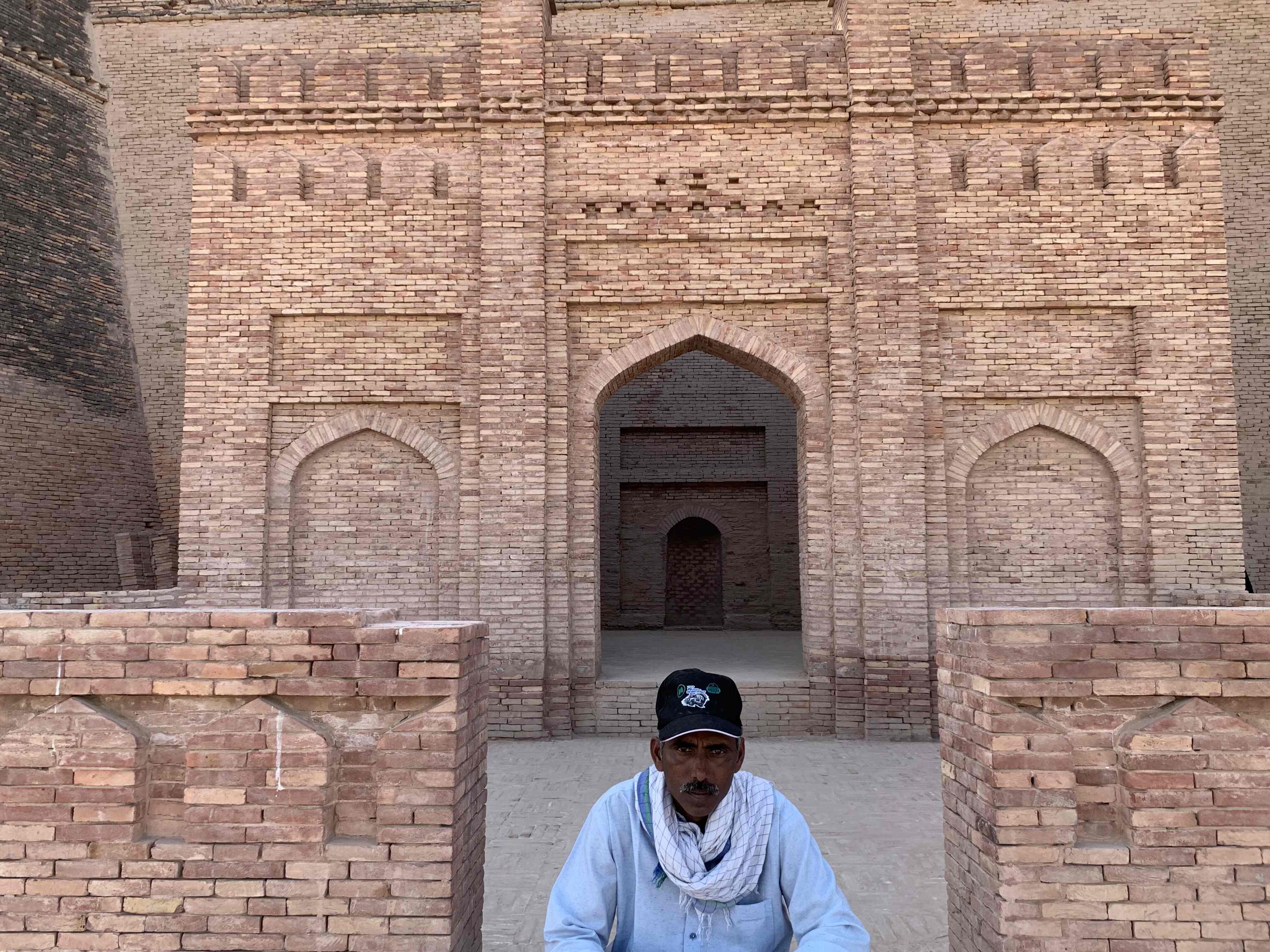
But through this six-day event, the silence of the expansive landscape echoes with the roar of engines, bringing adventure tourism and economic benefits for the local community. The Jeep Rally, inaugurated in 2005 by TDCP, stands as a significant annual motorsport event in Pakistan, that has experienced remarkable growth over the years. Its escalating prominence is evident in its ability to attract participants and spectators from across the country and around the world, cementing its status as a global phenomenon in the realm of off-road racing.
Passion and Skill Know No Gender Boundaries
However, a noticeable absence lingers in the crowd—there are no women among the spectators, and the connectivity signals, too, are close to nonexistent. The region's traditionally patriarchal society and historical norms, which confine women to domestic roles, limit their visibility in public spaces.
In this unique and challenging environment, being a female journalist adds an extra layer of difficulty.
As a female journalist, I believe I bring a unique perspective that goes beyond the traditional focus on specifications and performance. Sometimes, reframing the narrative to focus on the passion and dedication that brings you to such a unique setting helps rebuild confidence.
As the camera's focus narrows in, Singh further asks, "What are your thoughts on the perception that the Desert Jeep Rally is often seen as belonging exclusively to men?"
Surrounded by the male crowd, my mind momentarily goes blank. The harsh sun causes me to squint, even under my sunglasses, as I stare down at my dusty shoes, bearing witness to the rough landscape. Instead of confidently expressing that passion and skill know no gender boundaries, I stumble, finding myself discussing the diverse tourism aspects in a bit of a mumble. The atmosphere shifts my focus, and I feel the weight of skepticism—a subtle undercurrent questioning my presence and expertise in this arena.
The Goal of a Female Journalist Covering Male-Dominated Events
It's entirely normal for focus to waver, especially as a female journalist navigating uncharted territories. The pressure to defy stereotypes and assert oneself in male-dominated spaces can be overwhelming. However, it's crucial to recognise that moments of distraction or self-doubt are part of the journey. To regain focus, one must take a moment to breathe, acknowledging the challenges without internalising them.
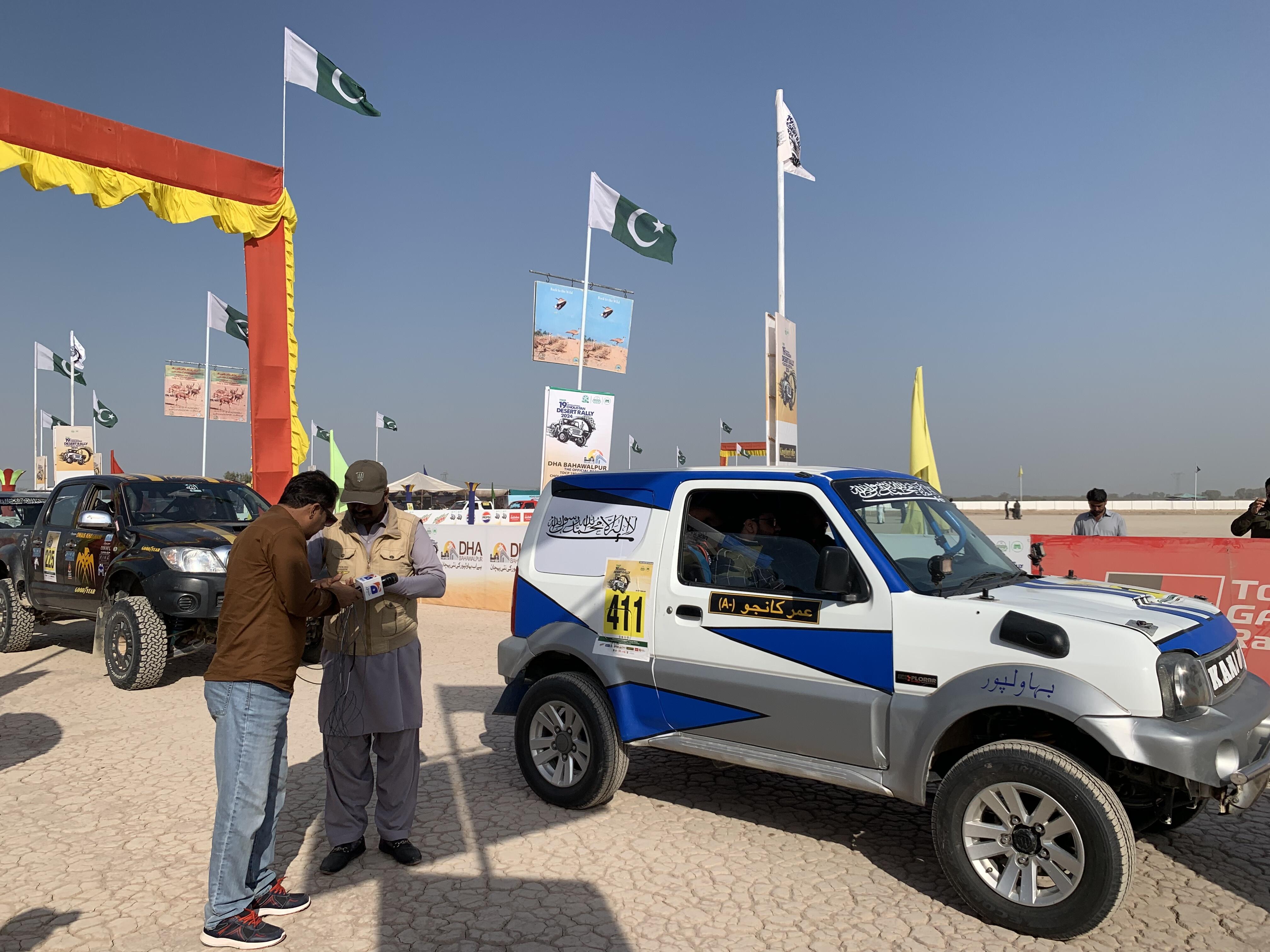
However, I believe it's crucial to revisit this question now and emphasise that the motorsport landscape is changing, with women playing a significant role in breaking stereotypes.
Fawad Akbar Awan, Head of Marketing & Corporate Affairs at TDCP, shares, "This year, we've seen a noteworthy increase in the participation of female drivers at the Cholistan Desert Jeep Rally."
As these female drivers navigate the rough ground and compete with passion, they symbolise a powerful force driving positive change, challenging preconceptions, and inspiring a new generation. The goal of a female journalist covering such an event is to spotlight the diverse talent and contributions of both male and female participants, contributing to the broader narrative of reshaping perceptions and promoting inclusivity in a domain that's evolving beyond traditional norms. Contributing to the Cholistan Desert Jeep Rally's success, Maham Shiraz, a female participant, secures victory in the women's category, crossing the finish line in an impressive 1 hour, 25 minutes, and 9 seconds.
It's as if the gender script has already been written, casting them as outsiders, especially in the realm of sports understanding.
Contribute to the Conversation from a Different Angle
Singh asks next, "What do you think about the different vehicles participating in the rally?"
While I admit that my expertise in the technical aspects of vehicles is limited, I find value in exploring and appreciating the diversity, vibrancy, and outer appearance of the rally models. I shed light on the design, and the broader cultural significance of the various vehicles present at the rally. This approach allows me to contribute to the conversation from a different angle, emphasising that diversity in coverage is essential for a more comprehensive understanding of the event. As a female journalist, I believe I bring a unique perspective that goes beyond the traditional focus on specifications and performance. Sometimes, reframing the narrative to focus on the passion and dedication that brings you to such a unique setting helps rebuild confidence.
Each photograph serves as a pixel contributing to a broader image of challenging norms, providing a profound opportunity to showcase that gender should never limit one's passion or capabilities.
Female Journalists Viewed through a Lens of Perceived Inexperience
Despite my confidence, the atmosphere suggests an expectation that I may not have the depth of knowledge necessary to fully grasp the intricate details and complexities of the game. This becomes an additional hurdle that requires female journalists to not only report on the event but also dismantle stereotypes and affirm their place as knowledgeable and capable professionals. Female journalists are likely viewed through a lens of perceived inexperience. It's as if the gender script has already been written, casting them as outsiders, especially in the realm of sports understanding.
If there is a female team member, fostering a connection with her can prove instrumental in gaining insights into nuanced aspects and navigating potential cultural sensitivities.

As the interview concludes, I'm approached by more television representatives seeking further interviews with me. Taking control of the situation, I skillfully steer the conversations, ensuring the focus remains on the rally and its participants rather than my gender. Politely excusing myself with a subtle nod, I reach for my phone and, with determination, prepare to document the lively moments of the Cholistan Desert Jeep Rally through my camera lens and notebook. Each photograph serves as a pixel, contributing to a broader image of challenging norms, providing a profound opportunity to showcase that gender should never limit one's passion or capabilities.
Overcoming Hurdles in Challenging Environments
However, the seemingly straightforward task of uploading these captures in real-time encounters a roadblock—there are no signals and no internet for live reporting.
As I grapple with the technical obstacles, it becomes evident that overcoming this hurdle requires more than just the right equipment.
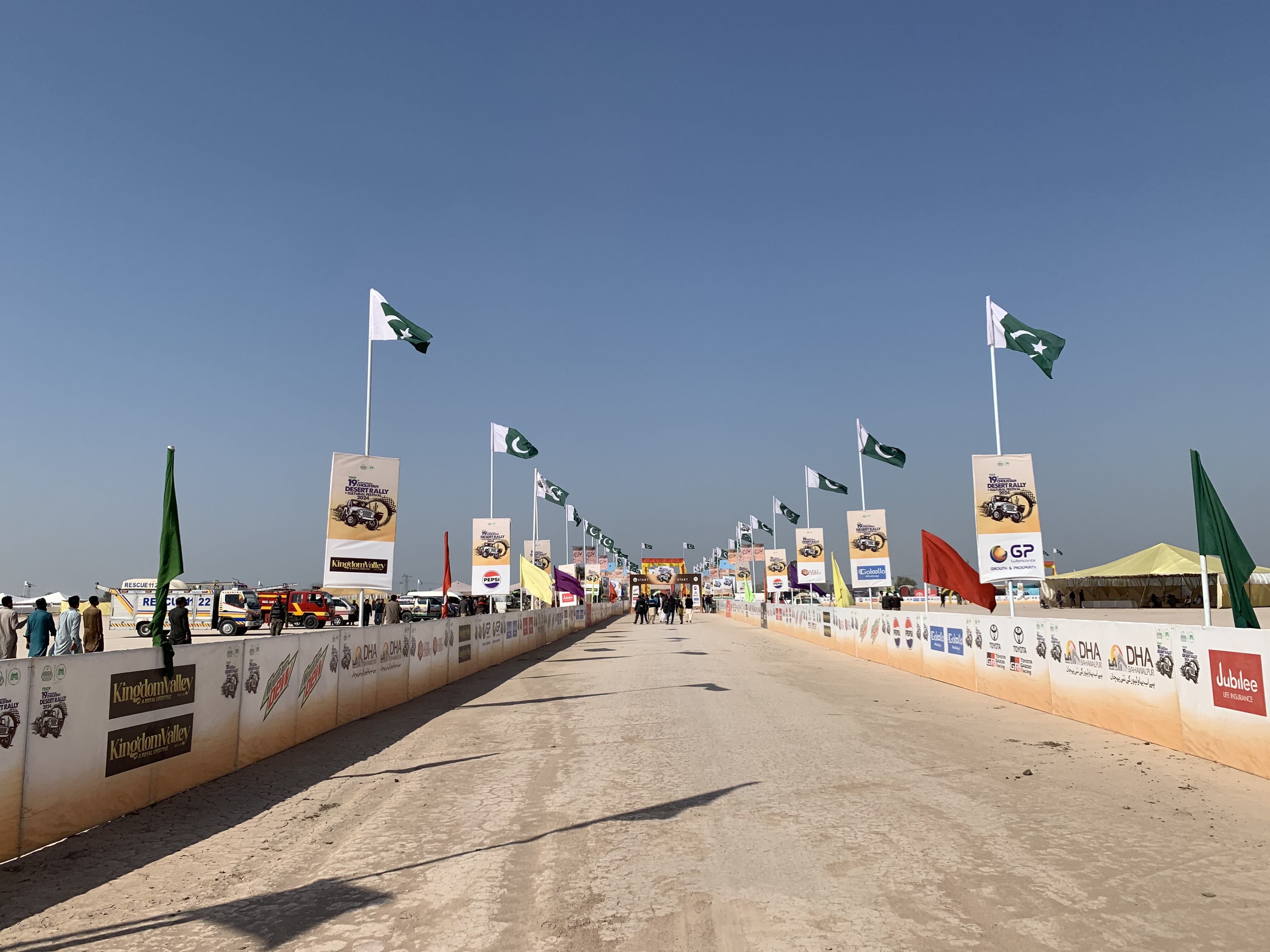
In such situations where connectivity is likely to be a hurdle, female journalists must form a strong understanding of and effective communication with event organisers and teams beforehand. If there is a female team member, fostering a connection with her can prove instrumental in gaining insights into nuanced aspects and navigating potential cultural sensitivities. This connection not only facilitates logistical support but also opens avenues for collaborative problem-solving, ensuring a smooth flow of information even in challenging environments. It plays a vital role in bridging potential gender gaps within the context of event coverage in a remote location.
Finding the Game-Changer: the Only Female Event Organizer
Bakhtawar Nazir, Marketing Business Developer at the Tourism Development Corporation of Punjab (TDCP), emerges as a vital link on the ground for me. As the other sole female worker, she not only understands the challenges present in a traditionally patriarchal society but also demonstrates a keen understanding of the connectivity struggles in the area.
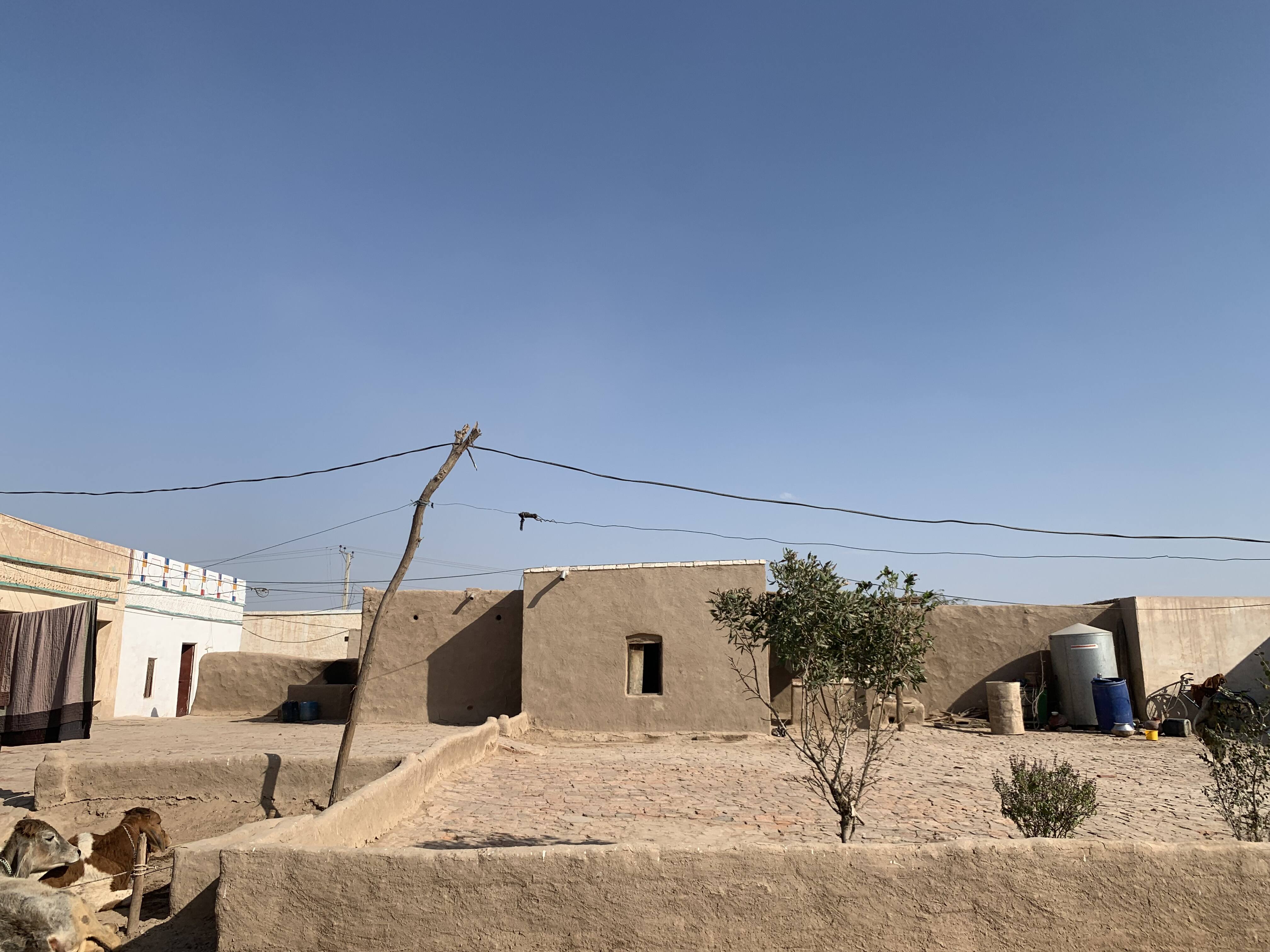
Armed with a phone equipped with an alternative SIM card that provides some signals in the area, Bakhtawar emerges as a game-changer. Her device not only manages to catch some elusive signals but also becomes a shared hotspot for the entire team on the ground, ensuring that our coverage can transcend the connectivity limitations, delivering real-time stories even in the most remote locations.
Bakhtawar becomes a bridge between my journalistic pursuits and the intricate dynamics of the local context. Recognising the necessity for authentic local insights, she graciously takes me under her wing, bringing me to a mud house and introducing me to its residents, especially the women, thereby enabling a deep understanding of their experiences. Through her guidance, the stories of Cholistan unfold, revealing layers of resilience that might have otherwise gone unnoticed.
Female journalists, by building meaningful connections with local women, become conduits for authentic narratives, adding to a more inclusive portrayal of events like the Cholistan Desert Jeep Rally.
Layers of Resilience that Might have otherwise gone Unnoticed
"The rally significantly boosts the local economy, leading to a substantial increase in earnings over the course of this six-day event compared to the entire year. Villagers set up stalls, selling local produce, and the festive atmosphere transforms the village into an environment reminiscent of Eid for the villagers," shares Bakhtawar.
"In the past, the absence of basic amenities was glaring, with villagers and animals sharing the same water sources. Now, thanks to improved water systems implemented because of the rally, the narrative is shifting," she adds.
Connecting with a female team member behind the scenes not only helps access stories that enhance the location's coverage but also highlights the unique harmony between local perspectives and the global stage.
Female journalists, by building meaningful connections with local women, become conduits for authentic narratives, adding to a more inclusive portrayal of events like the Cholistan Desert Jeep Rally. This fosters a deeper understanding of the challenges faced by the community and the positive transformations shaping their lives.
I'm reminded of numerous courageous female journalists worldwide who fearlessly broke barriers and challenged gender stereotypes in reporting from remote locations or male-dominated spheres.
Courageous Female Journalists Worldwide Who Fearlessly Broke Barriers
As Bakhtawar and I continue to explore around, past the historical Derawar Fort, offering prayers at mosques and admiring precious Islamic monuments amidst the male-dominated, dust-filled air, I'm reminded of numerous courageous female journalists worldwide who fearlessly broke barriers and challenged gender stereotypes in reporting from remote locations or male-dominated spheres.
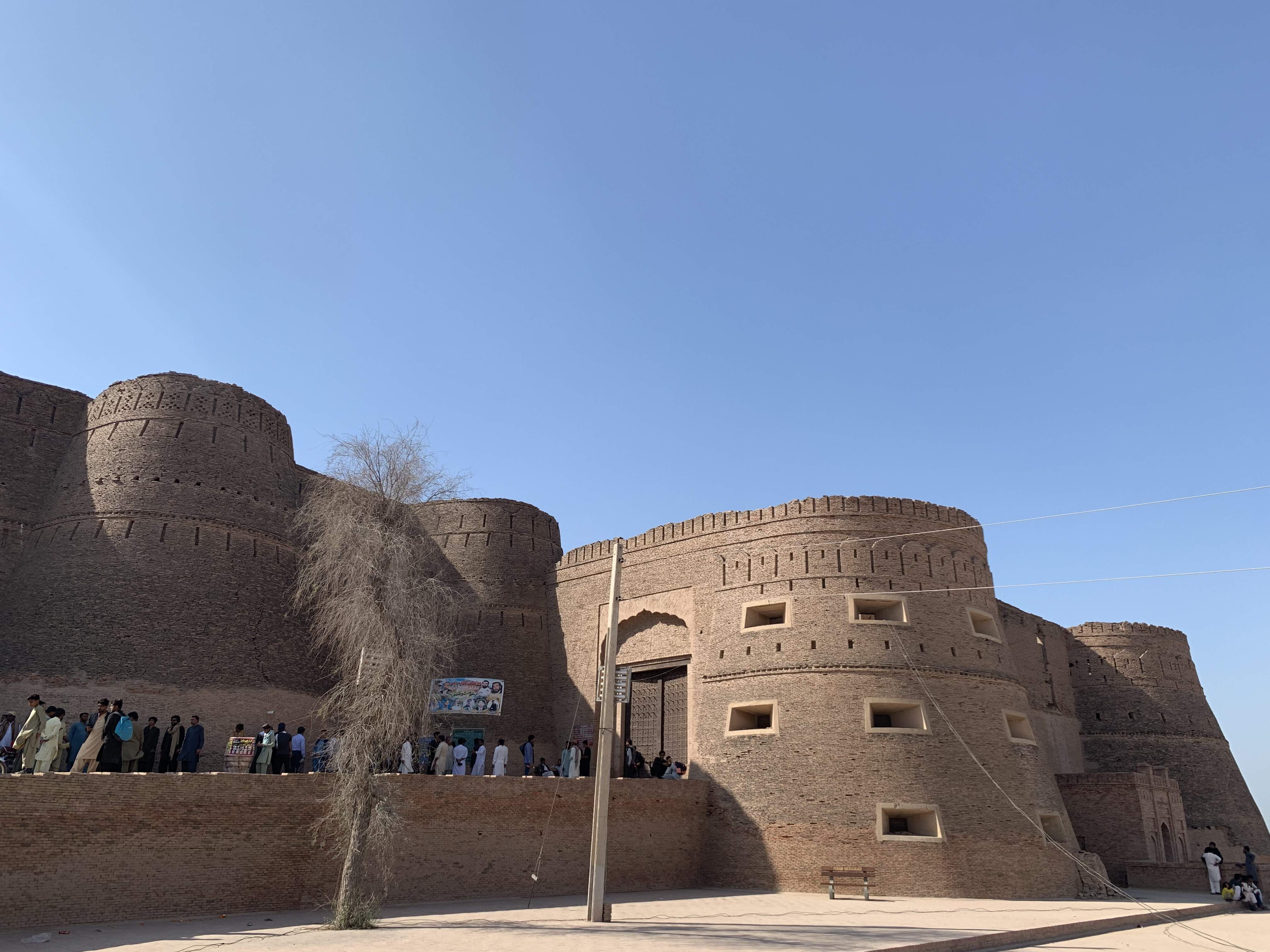
A notable example is journalist Yalda Hakim, who has reported from remote Afghan villages, explored Aboriginal communities, and covered stories from perilous war zones worldwide. In breaking through gendered expectations in sports journalism, Pakistani journalists Zainab Abbas and Marina Iqbal stand out. Zainab, renowned for insightful cricket analysis and engaging interviews, has shattered stereotypes, proving that a woman can be equally adept at dissecting the nuances of the game. Marina, a former cricketer turned commentator, brings a unique perspective, challenging the notion that women lack the depth required for insightful sports commentary. Both serve as inspirations, demonstrating that gender should never be a barrier to pursuing one's passion and excelling in a field traditionally dominated by men. These women, along with many others, have risen above societal expectations, establishing themselves as prominent figures in the field and paving the way for more inclusivity and recognition of female expertise in journalism.
My journey concludes not just as a story of the Cholistan Desert Jeep Rally, but as a narrative celebrating the strong spirit of women in journalism and sports. Journalism, under scorching heat, zero connectivity, and tough terrains, stands as a testament to professionalism, resilience, and strength.





























![A demonstration against Israel's war on Gaza on Paulista Avenue in São Paulo on November 4, 2023, draws attention to the deaths of children while the media focuses on the war against terrorists. [Photo: Lina Bakr]](/sites/default/files/ajr/2024/Picture1.png)

